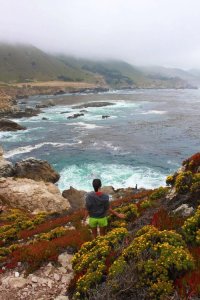I woke up this morning to an email from a Haitian friend of mine, asking for money to attend school. My brows knitted. It wasn’t the most pleasant way to wake up. This isn’t first time I have received this kind of financial requests from friends and acquaintances and certainly will not be the last. I had given away every last penny I can possibly give when I left Plaisance, some of it to him. American friendships do not come with the same expectations of financial support.
“I can’t, Jean Rony.” I wrote. I wasn’t sure what to say. I logged off Facebook and went to make a cup of coffee.
Then I remembered the first time I met him. He was this quiet boy sitting inside the Digicell door, where I went to charge my computer. “Ki laje ou?” I’m twenty-two. “Me too!” I said with a big grin. He looked at me instead and shook his head, “Look at you, you’re twenty-two and done with college. I am twenty-two and I still haven’t finished high school.” We sat together often, during those months that I was in Plaisance. He often brought his English books, always eager to read aloud passages so I can correct his pronunciation. “You are my best friend. M’ap panse de ou anpil.” He texted me on my last day.
I remember that and I remember how I had spent 19.99 on a graduation present for a friend this morning. I remember how I had spent 30.29 on another Swiss Army Knife for myself a few days ago, simply because I was careless with my last one. I remember the 12.89 that I spent on beers a few days before that. That’s half of the tuition at a private school for a year for a Haitian child. I doubt his tuition was much more than that.
I feel the same shame now that I felt when my other Haitian friend told me about how he gives much of what he earns to his friends and relatives. “Of course, I share everything.” He said, casually. I think of my frivolous expenses and I think of this post by someone I know. We can’t keep handing out, but at the same time — it is just so incredibly, sickeningly unfair. “I am twenty-two too and I still haven’t finished high school.”
In Rise of the Novels, we discussed, in the context of novels, the transition from “you are a good person because of what you own” to “you are a good person because who you are,” from extrinsic to intrinsic. Similarly, interpersonal relationships transitioned in a similar sense — from being based on materialistic means to internal values. The transition has been so complete that we forget society was once based on something different. In fact, we antagonize and frown upon relationships that are based on anything other than “internal values” (despite that, oftentimes, these internal values are very much formed by what we can afford to experience. “Well-travelled” and “adventurous” are two more acceptable terms to like about someone than something like, say, “having enough money to take cruises to foreign and faraway lands”).
And sometimes, I forget how embedded in my culture I am as well. I am repulsed by these instances where my Haitian friends ask me for money, because in the society I grew up in, friendships do not come with these materialistic ties. My first instinct is that it is because I am a blan. But in the average Haitian community, the wealthier relative/neighbor very much has a responsibility to share their wealth. It isn’t because I am a blan, but because I have the means to give. Asking for money, in such a society, does not cheapen the ties between two people and is not because the other views you as primarily as a means of receiving money. I think — that is where most foreigners in this situation would take offense.
He is using the $40 to finish school, so he can begin providing for his mother and his sister — and I would probably use it on a dress. When I had quickly written back, “I can’t,” what I had partially meant was also that I only want to give when it comes at little to no cost to me, a phenomenon that seems to plague my generation.
Ayiti cherie, you continue to make me re-think my actions and values even when I’m not there.
(Edit: I will finish this post another time, but this post brings up a certain point about “low-cost” aid that I cannot properly address at this moment. To clarify, briefly, after thinking about this some more, I do not mean by this post that simply donating money is the way to help people in Haiti. In this particular case with my friend, this amount of money would have put him through a much-needed class and was not simple hand-out from a stranger. For some, money would actually be more of a “low-cost” commitment, that can actually be more debilitating to a society than otherwise.)

